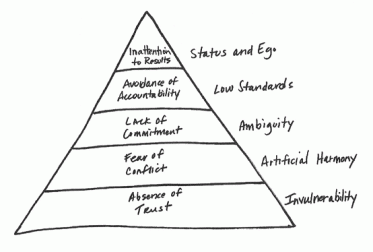This is going to come across as a complete humblebrag but bear with me (interestingly this is spelled ‘bear’ rather than ‘bare’ – Google it – makes for a good read)…
How many of you genuinely work somewhere (or for those of you that consult, with clients) that really align to your values?
Not just corporate speak “oh honesty and excellence, well yeah I totally agree with those in theory” – but, right in your bones, you get to work somewhere that you’re genuinely proud of?
I get to. It wasn’t an accident. I’ve worked a few places where that wasn’t true (and one where is was the polar opposite of true). I purposefully sought somewhere where I could hand-on-heart say that I believe in what we do, why we do it and how we do it. It was a bit scary at first.
The role I began at my current organisation (OK – YMCA Victoria – it’s all over my LinkedIn and Twitter anyway :)) could have been seen as a ‘step down’ career wise. I took a role with less pay and a less impressive sounding job title – but it felt 100% right.
Why?
- When I met with the manager of the team where I’d work I genuinely felt like he was there for the right reasons and I’d be able to learn from him.
- When I looked into the work that YMCA Victoria do, I realised they are an organisation of action (impressively so and across a huge range of areas).
- When I interviewed the team interviewing me where really passionate about their work. It came across really clearly and I also had a sense from both my key stakeholders (that were involved in all stages of the interview process) that they loved what they do.
- I felt that there was potential with this organisation for future opportunities and growth.
I was hugely nervous about this decision. Actually ‘hugely nervous’ doesn’t even begin to convey just how terrified I was about the decision to leave a great job. But the payoff was worth it.
Very quickly I had confirmation that I’d made the right decision. The team I worked with was great, I was mentored by some really talented people and my primary operational stakeholder group consistently gave me extra time (while never making me feel like I was imposing) to really help me understand their world.
When I attend events or talk with my peers at other organisations I regularly feel out of place for loving what I do and where I work so much. But I shouldn’t.
I realise the economic realities and the hugely privileged position I was in to take my time in finding the right role – and being educated and skilled in an area where I can find my dream job. In saying that, I did take my time. My husband and I moved to Australia with 3 suitcases and I’ve had some shocking work experiences along the way, in both Australia and New Zealand. But being purposeful and taking a long term view has meant that I now work with people that I genuinely hope I continue to work with for 5 (or, gasp, even 10,) years.
Can everyone work in their dream job? Probably not. The way the world works means for many that holding on to a job, any job, that puts food on the table may be the driving objective.
But if you can, if there’s any way you can chase your dream job, or dream company. Do it. I cannot tell you how much my life has changed since taking a role somewhere where I’m proud to work.

